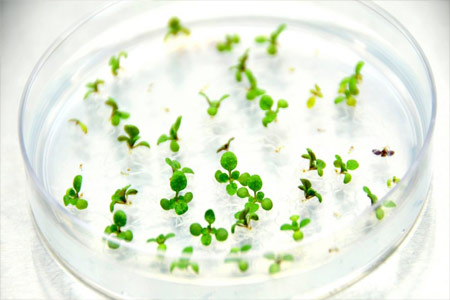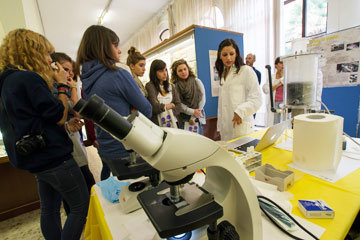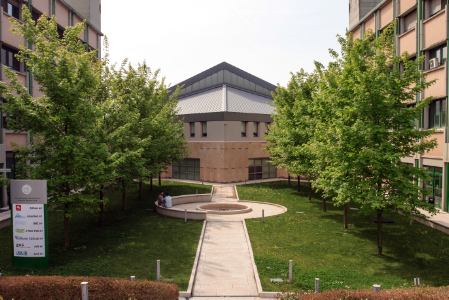- Autori:
-
Tsunematsu, Takaaki; Mouri, Yasuhiro; Shao, Wenhua; Arakaki, Rieko; Ruppert, Jan G.; Murano, Kensaku; Ishimaru, Naozumi; Guardavaccaro, Daniele; Pagano, Michele; Kudo, Yasusei
- Titolo:
-
Sustained chromosomal passenger complex activity preserves the pluripotency of human embryonic carcinoma cells
- Anno:
-
2025
- Tipologia prodotto:
-
Articolo in Rivista
- Tipologia ANVUR:
- Articolo su rivista
- Lingua:
-
Inglese
- Referee:
-
No
- Nome rivista:
- SCIENCE SIGNALING
- ISSN Rivista:
- 1937-9145
- N° Volume:
-
18
- Numero o Fascicolo:
-
874
- Intervallo pagine:
-
1-16
- Parole chiave:
-
Human embryonic carcinoma, pluripotency, APC/CCdh1
- Breve descrizione dei contenuti:
- Human embryonic carcinoma (hEC) cells are derived from teratocarcinomas, exhibit robust proliferation, have a high differentiation potential, are the malignant counterparts of human embryonic stem cells (hESCs), and are considered hESC-like. The chromosomal passenger complex (CPC), made up of the microtuble binding protein Borealin, the kinase Aurora-B, the CPC-stabilizing inner centromere protein (INCENP), and the inhibitor of apoptosis family member Survivin, regulates cell division and is active exclusively during mitosis in somatic cells. The anaphase-promoting complex/cyclosome and its cofactor Cdh1 (APC/CCdh1) is a ubiquitylating complex that catalyzes the degradation of Aurora-B and Borealin in somatic cells but has low activity during interphase in hESCs. Here, we found that Borealin and Aurora-B exhibited sustained stability throughout the cell cycle of hEC cells due to low APC/CCdh1 activity. In contrast with somatic cells, CPC activity persisted across the cell cycle of hEC cells because of diminished APC/CCdh1 activity. Disrupting the CPC complex by depleting its constituents triggered spontaneous differentiation in hEC cells. As hEC cells differentiated, APC/CCdh1 activation curtailed CPC activity. Inactivating the CPC by pharmacologically inhibiting Aurora-B induced hEC cell differentiation by activating the epithelial-to-mesenchymal transition (EMT) program. Hence, APC/CCdh1-mediated termination of CPC activity triggered hEC cell differentiation. Collectively, these findings demonstrate a role for the CPC in governing hESC cell fate.
- Id prodotto:
-
144543
- Handle IRIS:
-
11562/1156747
- ultima modifica:
-
8 marzo 2025
- Citazione bibliografica:
-
Tsunematsu, Takaaki; Mouri, Yasuhiro; Shao, Wenhua; Arakaki, Rieko; Ruppert, Jan G.; Murano, Kensaku; Ishimaru, Naozumi; Guardavaccaro, Daniele; Pagano, Michele; Kudo, Yasusei,
Sustained chromosomal passenger complex activity preserves the pluripotency of human embryonic carcinoma cells
«SCIENCE SIGNALING»
, vol.
18
, n.
874
,
2025
,
pp. 1-16
Consulta la scheda completa presente nel
repository istituzionale della Ricerca di Ateneo 








